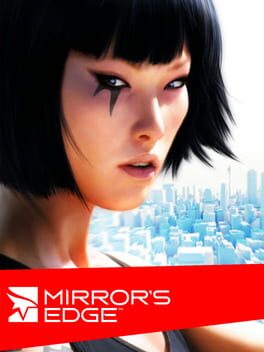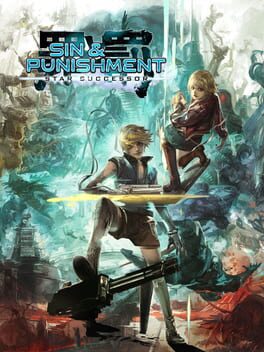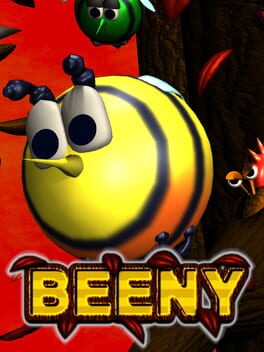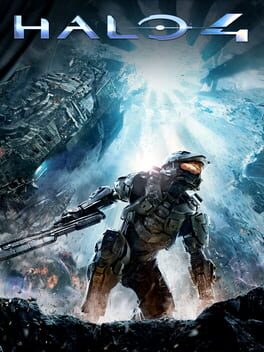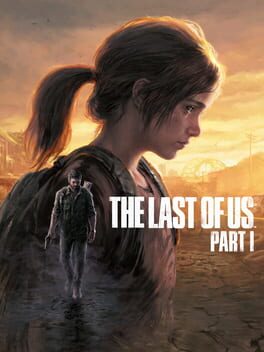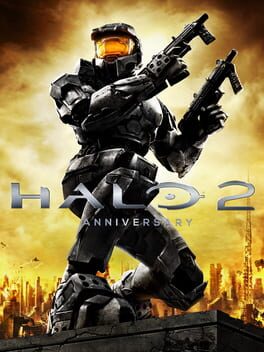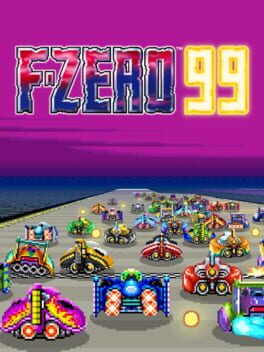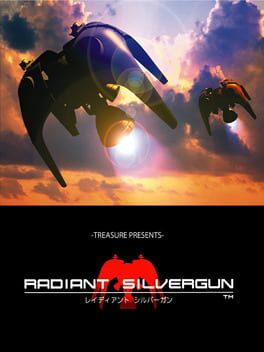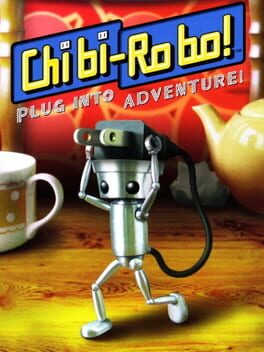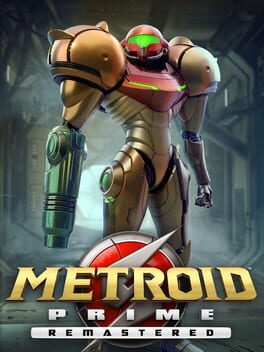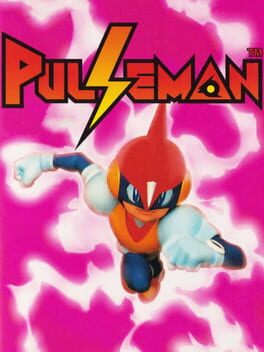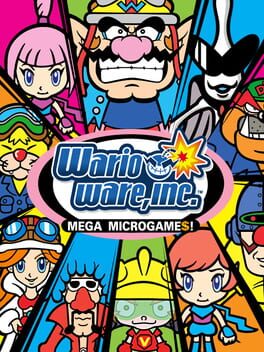AbramBuehner
2008
Mirror's Edge was developed by the fun police. I see why people enjoy this title, but I just found it to be more frustrating than fun. The game is at its best when the player can really flow across rooftops - but the game only lets you do that for a small portion of the runtime. It has the Sonic problem. Sonic is most fun when he goes fast, but if he's always going fast the game falls apart. Mirror's Edge recognizes this by slowing the pace WAY down with interior locations that are puzzle-focused. This isn't what I enjoyed about the experience, so I was often let down by the design. Especially since the game feels overly exact - nothing has a stickiness to it that accounts for small player error. I often found myself annoyed by jumps that I was performing 95% correctly, but the game just wouldn't give to me. Maybe I'm bad at Mirror's Edge, who knows. But Celeste illustrates that platformers should be charitable toward their player in service of flow and momentum. Mirror's Edge disagrees, and frankly I don't see myself compelled to 'git gud' here. Failure felt discouraging opposed to galvanizing, so I'll be partying ways with the game here. I did love its art direction and soundtrack though. The cutscenes, however, were strangely low-budget and distracting. At some point I would like to play Catalyst as I see great potential here, but for my tastes it's buried under a lot of design decisions I don't connect with. Also, the shooting? What's up with that? This is a DICE game, after all. When Mirror's Edge is fun, it's really fun, but it undercuts its itself often.
2023
I have a very cynical viewpoint on AAA storytelling, often seeing it as faux-meaningful and vaguely cinematic. Alan Wake II, by contrast, is neither merely appropriating cinematic technique or falling back on rote nonsense. It's certainly nonsense, but it embraces that - it's an intentional mindfuck that truly pushes the AAA game narrative not necessarily in its contents but in its mode. There are countless points throughout Alan Wake II where Remedy's approach to storytelling actually feels sophisticated and provocative. And sure that's a low bar (when you discount your TLOUs, your Red Deads, your God Of Wars - the really marquee stuff) but Remedy leaps so god damn far over it.
By fusing live action and traditional game cutscenes here, Remedy has created a new way to convey information that is both surprisingly harmonious and purposefully discordant. Alan Wake II is clearly aware of the "rules" that curtail AAA storytelling and break them, breaking its own narrative framework in the process, breaking the fourth wall implicitly. Remedy knows that we're playing, and Remedy leverages that fact - even if Saga Anderson never turned to me, winked, and said "isn't this nuts!" We get as close to that line without passing it as feels appropriate, for a game concerned with asserting that games are a vehicle for storytelling that can and should do a lot more to remix the medium's affordances than it does now.
This is also just a really damn good survival horror game. It's genuinely scary and violent in a way that few games, I find, are able to be - reaching a sort of arthouse horror tenor that recognizes tropes, either leaning all the way in, or working to effectively subvert what's been wrung dry. Sound design, art direction, novel worldbuilding choices - they converge in such effectively unsettling ways.
Alan Wake II, when you become enmeshed in its illogical yet oddly contiguous world of postulations and terrors, is a new high-water mark for what AAA games can be. The ambition on display here is so well and truly beyond the overwhelming majority of its peers.
But this is also an extremely flawed game at its core, on a gameplay level. The combat is a major sore spot, significantly lacking enemy variety to the point of any sense of threat dissipating - the extremely limited foes all require the same rinse & repeat strategies. But these monster closets can become unnecessarily punishing when the checkpointing feels all sorts of wrong, forcing you to retread unskippable dialogues before retrying an encounter after those exchanges, in the worst moments.
Navigating the world can be a chore as well, constantly brushing against an unhelpful map and a world that - both intentionally and unintentionally - gets you turned around even when you backtrack through the same environments end for end, time and time again.
These issues wouldn't be so apparent if the game was 10ish hours long instead of 15 about, a pace that's further hampered by a narrative-switching structure that gives you all to much freedom at points. It often left me feeling more confused than empowered.
So there are doubtlessly a lot of issues with Alan Wake II, many of which aren't in the game's contemporaries. But those titles aren't attempting to be anywhere as boundary-pushing or inventive as this. Alan Wake II falls short because it tries VERY HARD to be more than you'd expect from a modern survival horror title, a modern AAA title overall. And in this case, I value that creative intent far more than I magnify its mechanical issues.
This is a flawed masterwork, but perhaps the most important and necessary game of 2023.
By fusing live action and traditional game cutscenes here, Remedy has created a new way to convey information that is both surprisingly harmonious and purposefully discordant. Alan Wake II is clearly aware of the "rules" that curtail AAA storytelling and break them, breaking its own narrative framework in the process, breaking the fourth wall implicitly. Remedy knows that we're playing, and Remedy leverages that fact - even if Saga Anderson never turned to me, winked, and said "isn't this nuts!" We get as close to that line without passing it as feels appropriate, for a game concerned with asserting that games are a vehicle for storytelling that can and should do a lot more to remix the medium's affordances than it does now.
This is also just a really damn good survival horror game. It's genuinely scary and violent in a way that few games, I find, are able to be - reaching a sort of arthouse horror tenor that recognizes tropes, either leaning all the way in, or working to effectively subvert what's been wrung dry. Sound design, art direction, novel worldbuilding choices - they converge in such effectively unsettling ways.
Alan Wake II, when you become enmeshed in its illogical yet oddly contiguous world of postulations and terrors, is a new high-water mark for what AAA games can be. The ambition on display here is so well and truly beyond the overwhelming majority of its peers.
But this is also an extremely flawed game at its core, on a gameplay level. The combat is a major sore spot, significantly lacking enemy variety to the point of any sense of threat dissipating - the extremely limited foes all require the same rinse & repeat strategies. But these monster closets can become unnecessarily punishing when the checkpointing feels all sorts of wrong, forcing you to retread unskippable dialogues before retrying an encounter after those exchanges, in the worst moments.
Navigating the world can be a chore as well, constantly brushing against an unhelpful map and a world that - both intentionally and unintentionally - gets you turned around even when you backtrack through the same environments end for end, time and time again.
These issues wouldn't be so apparent if the game was 10ish hours long instead of 15 about, a pace that's further hampered by a narrative-switching structure that gives you all to much freedom at points. It often left me feeling more confused than empowered.
So there are doubtlessly a lot of issues with Alan Wake II, many of which aren't in the game's contemporaries. But those titles aren't attempting to be anywhere as boundary-pushing or inventive as this. Alan Wake II falls short because it tries VERY HARD to be more than you'd expect from a modern survival horror title, a modern AAA title overall. And in this case, I value that creative intent far more than I magnify its mechanical issues.
This is a flawed masterwork, but perhaps the most important and necessary game of 2023.
2022
2012
Halo 4 feels a lot like 343 Industries trying to be Bungie and coming close. Both to its benefit and its detriment the game feels a lot like 3/Reach, albeit modernized in some respects. Sprint, cinematic gameplay moments (L to crawl), and standard late 7th-early 8th generation mission archetypes are all 343 really adds to Bungie's foundation. In some respects it works, the gunplay feels great, but in others it rings hollow. There's the prefunctory escape sequence, the Scorpion sequence, etc. There's a definite tension between 343 wanting to replicate Bungie's formula and reclaim (hehe) the series for itself. But, often 4 feels planted in another team's design.
Then, the second half of the game hits. While the Didact is a fairly underdeveloped character, the plot and its cinematic qualities are excellent. Cortana's descent into Rampancy is legitimately touching. The game comes more into its own in terms of level design and gameplay concepts too, focusing on the Promethians. It's fun to mow down Covenant, but the Promethians are 343's baby and they're pretty engaging combatants. Their arsenal is pretty much reskinned UNSC weaponry, which is disappointing, but as a pseudo-replacement for the Flood, they're great.
On the whole, it took a while to warm up to Halo 4, but then I really started to enjoy it for the game it is, not the game it could've been had Bungie made it. It feels like 343 gains that confidence too in the second half, and the end result is a pretty good, bordering on great sci-fi shooter. I'm excited to play 5 and feel 343 settle more into its enhanced mobility, ADS-focused gameplay and fresh narrative. While I understand people wanted 5 to feel more like classic Halo, I think 4 is at its best when it is moving forward, instead of looking back. I'm personally excited to see that doubled-down on.
Then, the second half of the game hits. While the Didact is a fairly underdeveloped character, the plot and its cinematic qualities are excellent. Cortana's descent into Rampancy is legitimately touching. The game comes more into its own in terms of level design and gameplay concepts too, focusing on the Promethians. It's fun to mow down Covenant, but the Promethians are 343's baby and they're pretty engaging combatants. Their arsenal is pretty much reskinned UNSC weaponry, which is disappointing, but as a pseudo-replacement for the Flood, they're great.
On the whole, it took a while to warm up to Halo 4, but then I really started to enjoy it for the game it is, not the game it could've been had Bungie made it. It feels like 343 gains that confidence too in the second half, and the end result is a pretty good, bordering on great sci-fi shooter. I'm excited to play 5 and feel 343 settle more into its enhanced mobility, ADS-focused gameplay and fresh narrative. While I understand people wanted 5 to feel more like classic Halo, I think 4 is at its best when it is moving forward, instead of looking back. I'm personally excited to see that doubled-down on.
2014
Halo 2: Anniversary is a stunning experience that felt like Combat Evolved plus. The dual narratives and lore elements rocked. The level design felt more inspired and varied. And, of course, the gunplay is as good as one would expect from Halo. A terrific first-person shooter that could've benefited from less spongy enemies and a more sensible checkpoint system. In the grand scale of things though, Halo 2's issues don't even come close to affecting the game's overall quality.
2023
In a year of wonderful Nintendo games, F-Zero 99 is perhaps the most surprising. And I don't mean surprise solely in the context of its announcement and revival of F-Zero after a near twenty-year hiatus. F-Zero 99 is surprising in that it's exceptional.
I wouldn't call the other 35/99 games exceptional, their success feels, in part, closer to novelty than anything else. Tetris 99 is a brilliant concept, but there's a routine asynchronicity to the gameplay - everyone's boards set off independently, intertwining only only a predetermined moments. It's interesting, I had a great time with the game, and it laid a unique foundation.
But at a certain point, it, Mario 35, and Pac-Man 99 all circle a similar drain of simply overlaying competitive-lite elements and busy UI onto insulated, solo gameplay loops. By my later hours with Tetris 99, I was really fighting against myself and my own skill ceiling with the junk lines thrown by my opponents being something of a secondary concern.
F-Zero 99 could've been similarly designed with the Tetris 99 philosophy and UI, Grey Bumpers being thrown onto your track by opponents, the track narrowing with each successive lap.
But, it tries something else. F-Zero 99 is exceptional because it synchronously puts you in direct contact with 98 others on track. This is genuine chaos, a twitch bout of kinetic action and reaction as you fly around corners and burn your boost power, each collision on track chipping just a bit more away.
There is a brilliant synthesis of F-Zero's decades-long ethos of aggressive racing and the intrinsic competition of battle royale here. The concept is not only harmonious but the execution is fantastic. Merging mechanics from F-Zero (SNES) and F-Zero X with modern sensibilities, there is a sort of timeless feel to how the game has been crafted. Like NES Remix before it, F-Zero 99 feels out of time in best possible way.
It also feels remarkably complete for being entirely free-to-play. Solid progression systems, illustrated menus, multiple game modes (with more on the way) - in breadth the game well exceeds what I expected from a 99 title as well.
Most critically though, the depth of F-Zero 99 feels bottomless even after my fifteen hours of gameplay. You begin by floundering on track, trying just to finish races. But then you become taken by interlocking systems that don't begin to appear until you're able to just handle yourself and cross the finish line. You start to manage your Golden Sparks and employ strategic usage of the Skyway. You start to identify weak racers and Bumpers to chain KOs. You learn when you hang back and when to surge ahead, saving your boost for the all-out final lap melee. And, given that absolute mania of being repeatedly jostled by dozens of other machines, you're weighing up each aforementioned concept in response to the snap decisions of the racers around you.
Fold all of that into rock-solid netcode alongside a brilliant rival progression system and you're staring down one of the most potent "one more round" experiences in ages. I love F-Zero and I expected to enjoy 99. What I didn't expect was that I'd be entirely captivated by it.
I wouldn't call the other 35/99 games exceptional, their success feels, in part, closer to novelty than anything else. Tetris 99 is a brilliant concept, but there's a routine asynchronicity to the gameplay - everyone's boards set off independently, intertwining only only a predetermined moments. It's interesting, I had a great time with the game, and it laid a unique foundation.
But at a certain point, it, Mario 35, and Pac-Man 99 all circle a similar drain of simply overlaying competitive-lite elements and busy UI onto insulated, solo gameplay loops. By my later hours with Tetris 99, I was really fighting against myself and my own skill ceiling with the junk lines thrown by my opponents being something of a secondary concern.
F-Zero 99 could've been similarly designed with the Tetris 99 philosophy and UI, Grey Bumpers being thrown onto your track by opponents, the track narrowing with each successive lap.
But, it tries something else. F-Zero 99 is exceptional because it synchronously puts you in direct contact with 98 others on track. This is genuine chaos, a twitch bout of kinetic action and reaction as you fly around corners and burn your boost power, each collision on track chipping just a bit more away.
There is a brilliant synthesis of F-Zero's decades-long ethos of aggressive racing and the intrinsic competition of battle royale here. The concept is not only harmonious but the execution is fantastic. Merging mechanics from F-Zero (SNES) and F-Zero X with modern sensibilities, there is a sort of timeless feel to how the game has been crafted. Like NES Remix before it, F-Zero 99 feels out of time in best possible way.
It also feels remarkably complete for being entirely free-to-play. Solid progression systems, illustrated menus, multiple game modes (with more on the way) - in breadth the game well exceeds what I expected from a 99 title as well.
Most critically though, the depth of F-Zero 99 feels bottomless even after my fifteen hours of gameplay. You begin by floundering on track, trying just to finish races. But then you become taken by interlocking systems that don't begin to appear until you're able to just handle yourself and cross the finish line. You start to manage your Golden Sparks and employ strategic usage of the Skyway. You start to identify weak racers and Bumpers to chain KOs. You learn when you hang back and when to surge ahead, saving your boost for the all-out final lap melee. And, given that absolute mania of being repeatedly jostled by dozens of other machines, you're weighing up each aforementioned concept in response to the snap decisions of the racers around you.
Fold all of that into rock-solid netcode alongside a brilliant rival progression system and you're staring down one of the most potent "one more round" experiences in ages. I love F-Zero and I expected to enjoy 99. What I didn't expect was that I'd be entirely captivated by it.
1998
What's most impressive about Treasure's games is how they marry spectacle with variety. Their games are comprised of front-to-back exceptional set pieces that end as quickly as they appear, being replaced by a moment even flashier than the last. A Treasure game never content to say in one place too long.
This is absolutely the case of Radiant Silvergun, whose huge bosses are rendered in such painstaking detail and scale, buttressing each stage with an encounter as tense as the ride to it. More manageable than Ikaruga but challenging no doubt, I really enjoyed my two days grinding story mode. The approach to difficulty here, allowing you to accumulate both power and knowledge between attempts, helps to stem the frustration of being forced to complete the campaign with no continues. Having now done it, I wouldn't have it any other way.
This is absolutely the case of Radiant Silvergun, whose huge bosses are rendered in such painstaking detail and scale, buttressing each stage with an encounter as tense as the ride to it. More manageable than Ikaruga but challenging no doubt, I really enjoyed my two days grinding story mode. The approach to difficulty here, allowing you to accumulate both power and knowledge between attempts, helps to stem the frustration of being forced to complete the campaign with no continues. Having now done it, I wouldn't have it any other way.
2005
I've wanted to play Chibi-Robo for a long time, but I'm glad that I waited until now. I wouldn't have properly appreciated how mature the narrative is - but not in a "rated M for mature" way obviously. The maturity comes from the game's preoccupation with domesticity.
Examining what Chibi-Robo has to say about gendered expectations through the prism of the Sandersons is an interesting exercise insofar as it's hard to nail exactly how progressive (or, conversely, not progressive) the messaging is. I tend toward this game being more conservative given its fixation on making Mr. Sanderson "the man of the house" once more, and the archetypal albeit inverted gender roles between the Sandersons being inverted for the sake of disrupting the status quo. Nonetheless, its concern for conservation, the openness with which the game discusses divorce and the place in which Mr. Sanderson's character lands (recontextualizing the familial unit) feel more progressive. It's far more politically charged than I expected.
But it's also as whimsical as I'd hoped, being a Skip game. Like Captain Rainbow (which came after but I'd played before), there's a sense of goofiness met with an earnestness that defines Skip's approach to character, scripting, and art direction. I love just being around these characters, from Plankbeard to Sarge to Chibi-Robo and the Sandersons themselves. I came to truly love them all by the credits.
That's due in large part to how narratively-driven the experience is. While the gameplay largely leaves Chibi-Robo and the player to their own devices, the game is never shy to wrestle control away for extended, charming narrative sequences. There's a sense of care when it comes to nuanced storytelling here that feels beyond what the majority of Nintendo games which have succeeded it have lacked. Of course, that's Skip's trademark.
But it's interesting to experience that commitment in 2023, when so much of Chibi-Robo feels more modern than what Nintendo develops/publishes now. And, that's in part due to how excellent its open-world design is.
Ultimately, this is an open-world game, for as peculiar as that may sound. And I love the game for it, which is odd for me as I'm typically adverse to open-worlds. Yet, its Chibi-Robo's commitment to deliberate scale and meaningful world design that keep me engaged.
The Sanderson house is absolutely one of the most brilliant game environments I've ever had the pleasure of exploring. As Chibi-Robo is mere inches tall, the very act of basic traversal is a challenge. Better yet - it's a puzzle. You're forced to very carefully consider Chibi-Robo's spatial relationships, carefully determining how you do something as simple as get atop a couch. In this sense, the game makes you incredibly conscious of fundamental gameplay considerations otherwise taken for granted including; "how to I traverse vertical distance?," "how do I efficiently move across an open horizontal plane?" Well, the result meticulous engagement with the organic design of the home.
If I were still writing pieces to this effect, I'd be trying to pitch something along the lines of "What Death Stranding Borrowed from Chibi-Robo: Making the Player Conscious of Space." It's quite incredible how the game asks you to pay attention.
It's also bold to program so much friction into the moment-to-moment gameplay. Like Chibi-Robo himself, every simple gameplay action is methodical, robotic. To charge Chibi-Robo, for instance, you need to: click A to pick up the plug. Click A to plug into a wall socket. Click A to pull the plug back out. Hit B to drop the plug again. That's just one example of how procedural every action is, once again slowing down the pace of the experience to where you can really stop and relate to the space around you, and the simple act of doing. There's something almost Buddhist about how the game makes you stay present in its moment, and appreciate the digital life around you. After all, given the narrative and progression tracker of Happy Points, this is an experience about gratitude and love and appreciation foremost.
And it's also a dynamic one. It goes back to the characters and the notion of excellent open world design. There are plenty of side quests here, but each has a function and none require a quest log. You don't need one - the house is so logical in its design and the characters are so memorable in their creation that you'll neither forget what you need to do or where you need to go. Once more, it's a testament to how deliberately-placed everything here is.
Further, it's a testament to how thoughtfully-irreverent and dynamic the world becomes. You come to truly care about the Free Ranger egg soldiers and their war against the family dog, Tao, and thus are motivated to complete their quest not because of its reqard or exp boost, but because you've built an attachment to their silly story. Then, as the Sanderson house and its residents dynamically change to suit evolving questlines, you become further wrapped up in how alive it all feels.
But to that point, there's a sort of irreconcilable tension between how dynamic the game is in its overall construction, and how static it can feel on a minute level. Ultimately, it's Chibi-Robo's job to clean. And the house becomes predictably dirty in the exact same ways as each day/night cycle passes. Jenny will leave the same empty soda cans in the same place in her room. Tao will track his muddy prints along the same section of living room floor. And you will clean them up just the same every day. The game does make an effort to introduce new mechanics and ideas which complicate your daily routine - but nonetheless you reach a point where a degree of monotony undercuts the real-world comfort in routine. Paired with some arbitrary progression gating behind having enough "moolah" to unlock new items, there's a sense of gamification which somewhat dilutes an otherwise intentional, organic world.
But despite any issues that I may have, I loved Chibi-Robo. I love its bizarre sound design and continual sense of humor. I love its art direction and sixth-generation, polygonal appearance. I love the act of doing, and I love the relationships I form with other characters. This is a genuinely mature, brilliant experience that sits at the top of Nintendo's catalogue and exemplifies the best of what games can be. Can't wait to play the two DS sequels later this year.
Examining what Chibi-Robo has to say about gendered expectations through the prism of the Sandersons is an interesting exercise insofar as it's hard to nail exactly how progressive (or, conversely, not progressive) the messaging is. I tend toward this game being more conservative given its fixation on making Mr. Sanderson "the man of the house" once more, and the archetypal albeit inverted gender roles between the Sandersons being inverted for the sake of disrupting the status quo. Nonetheless, its concern for conservation, the openness with which the game discusses divorce and the place in which Mr. Sanderson's character lands (recontextualizing the familial unit) feel more progressive. It's far more politically charged than I expected.
But it's also as whimsical as I'd hoped, being a Skip game. Like Captain Rainbow (which came after but I'd played before), there's a sense of goofiness met with an earnestness that defines Skip's approach to character, scripting, and art direction. I love just being around these characters, from Plankbeard to Sarge to Chibi-Robo and the Sandersons themselves. I came to truly love them all by the credits.
That's due in large part to how narratively-driven the experience is. While the gameplay largely leaves Chibi-Robo and the player to their own devices, the game is never shy to wrestle control away for extended, charming narrative sequences. There's a sense of care when it comes to nuanced storytelling here that feels beyond what the majority of Nintendo games which have succeeded it have lacked. Of course, that's Skip's trademark.
But it's interesting to experience that commitment in 2023, when so much of Chibi-Robo feels more modern than what Nintendo develops/publishes now. And, that's in part due to how excellent its open-world design is.
Ultimately, this is an open-world game, for as peculiar as that may sound. And I love the game for it, which is odd for me as I'm typically adverse to open-worlds. Yet, its Chibi-Robo's commitment to deliberate scale and meaningful world design that keep me engaged.
The Sanderson house is absolutely one of the most brilliant game environments I've ever had the pleasure of exploring. As Chibi-Robo is mere inches tall, the very act of basic traversal is a challenge. Better yet - it's a puzzle. You're forced to very carefully consider Chibi-Robo's spatial relationships, carefully determining how you do something as simple as get atop a couch. In this sense, the game makes you incredibly conscious of fundamental gameplay considerations otherwise taken for granted including; "how to I traverse vertical distance?," "how do I efficiently move across an open horizontal plane?" Well, the result meticulous engagement with the organic design of the home.
If I were still writing pieces to this effect, I'd be trying to pitch something along the lines of "What Death Stranding Borrowed from Chibi-Robo: Making the Player Conscious of Space." It's quite incredible how the game asks you to pay attention.
It's also bold to program so much friction into the moment-to-moment gameplay. Like Chibi-Robo himself, every simple gameplay action is methodical, robotic. To charge Chibi-Robo, for instance, you need to: click A to pick up the plug. Click A to plug into a wall socket. Click A to pull the plug back out. Hit B to drop the plug again. That's just one example of how procedural every action is, once again slowing down the pace of the experience to where you can really stop and relate to the space around you, and the simple act of doing. There's something almost Buddhist about how the game makes you stay present in its moment, and appreciate the digital life around you. After all, given the narrative and progression tracker of Happy Points, this is an experience about gratitude and love and appreciation foremost.
And it's also a dynamic one. It goes back to the characters and the notion of excellent open world design. There are plenty of side quests here, but each has a function and none require a quest log. You don't need one - the house is so logical in its design and the characters are so memorable in their creation that you'll neither forget what you need to do or where you need to go. Once more, it's a testament to how deliberately-placed everything here is.
Further, it's a testament to how thoughtfully-irreverent and dynamic the world becomes. You come to truly care about the Free Ranger egg soldiers and their war against the family dog, Tao, and thus are motivated to complete their quest not because of its reqard or exp boost, but because you've built an attachment to their silly story. Then, as the Sanderson house and its residents dynamically change to suit evolving questlines, you become further wrapped up in how alive it all feels.
But to that point, there's a sort of irreconcilable tension between how dynamic the game is in its overall construction, and how static it can feel on a minute level. Ultimately, it's Chibi-Robo's job to clean. And the house becomes predictably dirty in the exact same ways as each day/night cycle passes. Jenny will leave the same empty soda cans in the same place in her room. Tao will track his muddy prints along the same section of living room floor. And you will clean them up just the same every day. The game does make an effort to introduce new mechanics and ideas which complicate your daily routine - but nonetheless you reach a point where a degree of monotony undercuts the real-world comfort in routine. Paired with some arbitrary progression gating behind having enough "moolah" to unlock new items, there's a sense of gamification which somewhat dilutes an otherwise intentional, organic world.
But despite any issues that I may have, I loved Chibi-Robo. I love its bizarre sound design and continual sense of humor. I love its art direction and sixth-generation, polygonal appearance. I love the act of doing, and I love the relationships I form with other characters. This is a genuinely mature, brilliant experience that sits at the top of Nintendo's catalogue and exemplifies the best of what games can be. Can't wait to play the two DS sequels later this year.
1994
In the few hours I spent with Spider-Man 2, it became clear that this is exactly the game I expected it to be. Which, for most people, is a very good thing. From the jump, it's clear that Insomniac has greatly refined its sense of pace and scale, throwing the player into this big, dynamic Sandman battle that's not just a technical spectacle but a generally well-executed boss fight. It's a fantastic start.
But it didn't take long for the game to reveal itself to me is just more of the same - more check-boxy open-world upgrade tree beat 'em up faux-cinematic adventuring that exemplifies everything that most people like from AAA games but that I do not.
There's no doubt that the feel is here, but the feel is a familiar one, the context a familiar one. I think I'm just burnt out on this archetype. It's not broken, it's just not for me. The rationale for its incredibly high scores is plainly visible in just a few hours, but I can confidently table this one knowing that it's not going to appeal to my tastes and let others enjoy it in my place.
But it didn't take long for the game to reveal itself to me is just more of the same - more check-boxy open-world upgrade tree beat 'em up faux-cinematic adventuring that exemplifies everything that most people like from AAA games but that I do not.
There's no doubt that the feel is here, but the feel is a familiar one, the context a familiar one. I think I'm just burnt out on this archetype. It's not broken, it's just not for me. The rationale for its incredibly high scores is plainly visible in just a few hours, but I can confidently table this one knowing that it's not going to appeal to my tastes and let others enjoy it in my place.
